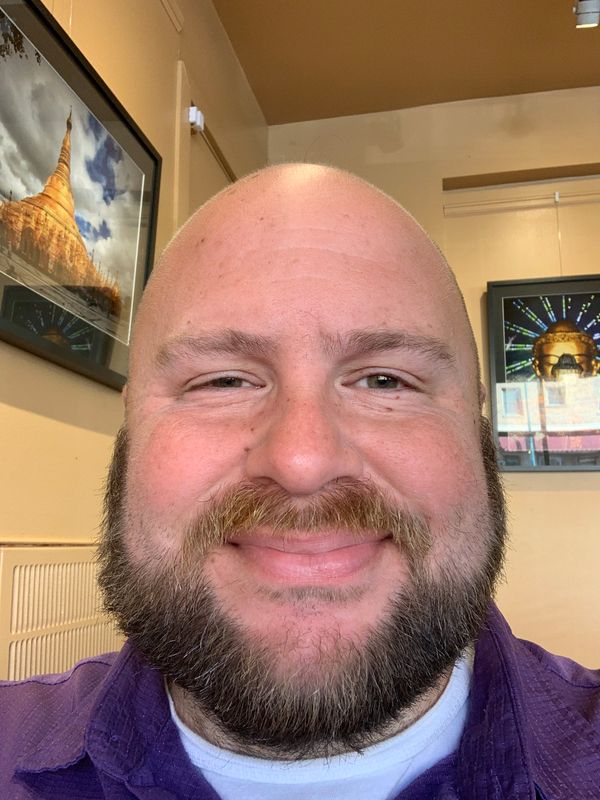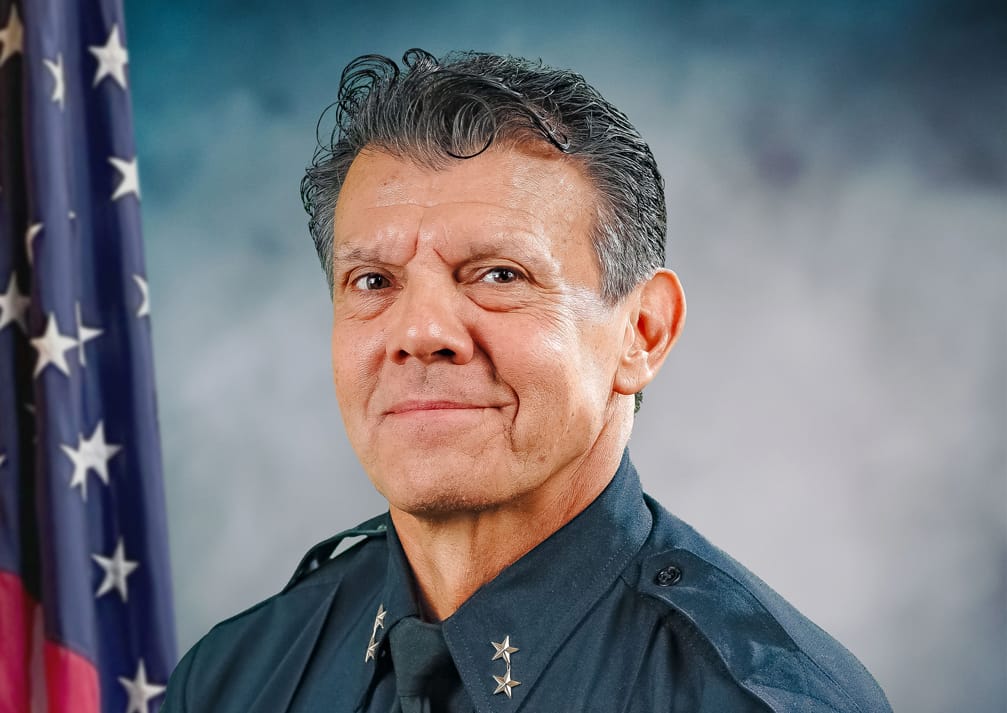VALLEJO – A federal judge has cleared the way for a wrongful death lawsuit to continue against the city of Vallejo and one of its police officers, striking a blow to the city's push to have the lawsuit tossed.
In a 19-page ruling released Thursday, U.S. District Judge Troy L. Nunley denied a motion for summary judgment from the city in a lawsuit filed by the family of Angel Ramos. Vallejo police officer Zachary Jacobsen shot and killed Ramos, 21, during a family fight in January 2017.
A summary judgment motion requires the judge to review the record and determine if there is sufficient evidence for the lawsuit to go to trial. Nunley wrote that he found sufficient evidence and he denied several claims filed by the city of Vallejo.
In particular, Nunley pointed to the fact that in a deposition, Jacobsen misidentified Ramos’ ethnicity and what he was wearing while recalling when he shot Ramos four times.
“By his own testimony, Jacobsen first saw a black man in jeans with a knife, and this was a predicate for fatally shooting a Hispanic man in boxers,” Nunley wrote. “Whether this ‘mistake’ was reasonable is a question that must be resolved by a jury and cannot be disposed of on summary judgment.”
The incident began when Jacobson and his partner, Matt Samida, responded to reports of a group of individuals fighting at a Sacramento Street home during the early morning hours of Jan. 23, 2017. Jacobsen said he heard yelling and screaming from the home and saw several people on a second story balcony fighting.
Jacobson claimed he saw Ramos holding a large knife at shoulder level – a point Ramos’ family denies.
The city asserts that Ramos ran from inside the house, mounted another man, later identified as Deshon Wilson, and began making stabbing motions. The family argues that Ramos came out of the house and kneeled over Wilson. They also presented deposition testimony from Wilson, Samida and Officer Jeremy Callinan where each testified that they did not see a knife.
“The undisputed facts are that Ramos and Wilson were engaged in an altercation where Ramos was on top of Wilson,” Nunley wrote.
The judge added that Ramos’s family’s attorneys “raised a genuine dispute as to whether it was reasonable for Jacobsen to believe Ramos had a knife and was stabbing Wilson, and therefore, whether it was reasonable for Jacobsen to believe that Ramos posed an immediate threat to officers or others. This question must be resolved by a jury.”
Despite not seeing a knife, Callinan, who was standing 3 to 5 feet from Jacobsen at the time of the shooting, testified that he believed Ramos was holding a knife and stabbing Wilson. Callinan said he “would have used his own handgun to shoot based on a perception of an immediate threat to Wilson’s life had Jacobsen not fired his weapon.”
“Wilson himself testified that ‘it was a fight between me and [Ramos],’ and Ramos’ own autopsy revealed a hand injury consistent with knuckle punching,” the judge’s ruling states. “Moreover, weapons were not observed at the scene while emergency responders were providing medical care.”
A large chef’s knife was found in the kitchen sink and a steak knife was found on the ground. Both knives contained Ramos’ DNA.
In response to the city’s motion, Ramos’ family argued a jury might determine that the officer intended to violate Ramos’ constitutional rights when he fired his weapon up into a crowded, dimly lit balcony with his view obstructed by wooden slats and possibly a tree and fencing.
“A jury could reasonably find that Jacobsen acted in ‘reckless disregard’ when he shot into the dimly lit balcony,” Nunley wrote.
Shortly before the shooting, Samida fired his Taser stun gun, hitting Wilson, who fell to the ground of the balcony. Jacobsen’s first shot was fired 14.5 seconds after Samida discharged his Taser.
The family disputes the official account that Jacobsen and Samida gave multiple commands to stop fighting while shining their flashlights at the balcony prior to the shooting.
The judge also rejected the city’s argument that Jacobsen was responding to an immediate threat and fired his weapon to protect Wilson. The city additionally argued that “that because nothing in the record suggests Jacobsen fired his gun for any other reason, summary judgment on this claim is proper.”
Ramos’ family disagreed, arguing that Samida, the other officer on scene, reached for his Taser, not his service weapon.
The judge found a factual dispute on whether Jacobsen had time to deliberate his actions, writing that he city claims “Jacobsen perceived an immediate threat,” but Ramos’s family’s attorneys pointed out that “Samida was loading his Taser cartridge at the time Jacobsen fired his shot.”
Civil rights attorney Melissa Nold, who is representing Ramos’ family in the case, called Nunley’s decision a “huge win.”
“It’s about Angel’s mom clearing her son’s name,” Nold said, adding that, “an unarmed kid was shot in his house and shouldn't have been.”
Part of Nunley’s order included dismissing the family’s claim that the city failed to train its employees and that the city ratified Jacobsen’s conduct when it failed to discipline him for the shooting.
Nold said she wasn’t surprised because at the time of the filing of the lawsuit, the public had yet to learn about allegations that officers bent their badges following a fatal shooting to mark the occasion.
Nold said the family hasn’t been deterred by the amount of time that has passed in the case – the city’s motion for summary judgment was filed with the court in May 2019. She noted that Nunley’s case load includes presiding over criminal cases as well.
Nold said despite the delay – the lawsuit was not about one thing.
“It’s not about money,” Nold said in response to a question about whether the family thought about settling with the city while the case dragged on for more than four years. “It’s about getting the truth out.”
More than a year after the shooting, a Vallejo Police Department board of review cleared Jacobsen of any wrongdoing. The eight-person board said the officer used reasonable force. But Jacobsen was admonished for not activating his body-worn camera during the incident.
The Solano County District Attorney’s Office also cleared Jacobsen of any wrongdoing in February 2018.
Samida recently left Vallejo, joining the Napa County Sheriff’s Office.
Vallejo City Attorney Veronica Nebb didn’t return a message seeking comment about Nunley’s ruling.
Before you go...
It’s expensive to produce the kind of high-quality journalism we do at the Vallejo Sun. And we rely on reader support so we can keep publishing.
If you enjoy our regular beat reporting, in-depth investigations, and deep-dive podcast episodes, chip in so we can keep doing this work and bringing you the journalism you rely on.
Click here to become a sustaining member of our newsroom.
THE VALLEJO SUN NEWSLETTER
Investigative reporting, regular updates, events and more
- policing
- Vallejo
- Vallejo Police Department
- Angel Ramos
- Zachary Jacobsen
- Troy Nunley
- Matt Samida
- Jeremy Callinan
- Melissa Nold

John Glidden
John Glidden worked as a journalist covering the city of Vallejo for more than 10 years. He left journalism in 2023 and currently works in the office of Solano County Supervisor Monica Brown.
follow me :




